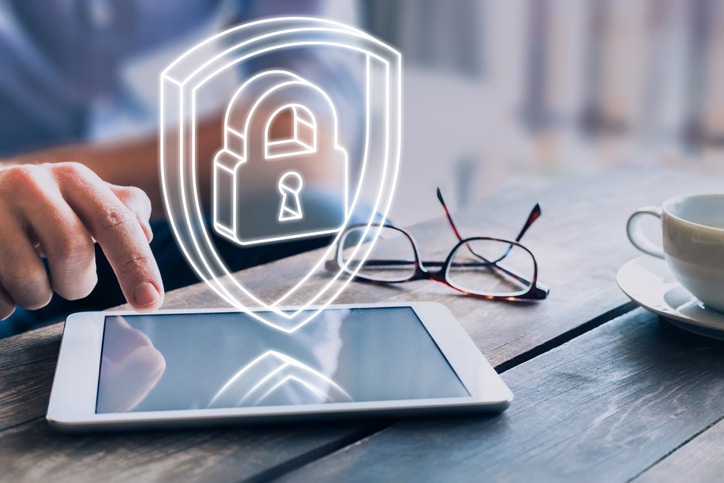1310 Nowell Road
Raleigh, NC 27607
1310 Nowell Road
Raleigh, NC 27607
Existing CSP Client: (919) 424-2060
SALES: (919) 420-3231


Several events in 2018 brought cybersecurity to the forefront of public consciousness, as major sectors– from financial institutions to Facebook– were affected by cybercrime. According to Forbes, 34 percent of US consumers had their personal information compromised in 2018. Security experts and business leaders are constantly looking for ways to keep two steps ahead of hackers. As we ring in the new year, predictions for 2019 are a popular topic. Here is what’s anticipated this year in the cybersecurity realm.
As digital capabilities are rapidly gaining a worldwide foothold, data is becoming our most highly-valued commodity. Many governments are already recognizing the pressing need to protect citizens’ personal information, especially amid mounting pressure from constituents who seek to hold companies accountable. This year will see the rest of the world follow suit, enacting laws that punish corporations and other entities that do not take data security seriously enough. It’s anticipated that such legislation will seek to ensure greater protection for connected devices (also known as the Internet of Things or IoT). These measures are also expected to set cybersecurity standards that reflect the value of the protected data.
Enacting legislation is a step in the right direction, but appropriate consequences are usually needed to enforce it. The EU led the way in taking a firm stand against cybercrime with the GDPR. The Golden State followed with the California Consumer Privacy Act, which takes effect in 2020. These initiatives establish considerable punitive measures for hackers. The UK required Equifax and Facebook to pay maximum fines as mandated by its data protection law. This year, it’s predicted that several companies, such as British Airways, Facebook, and Google will come under intense scrutiny, and more jurisdictions are likely to enact stiff penalties– perhaps totaling as much as a billion dollars– for compromising data security.
Cybercriminals primarily use email and compromised privileges to access consumers’ personal data or engage in other illegal activities, and that trend is likely to remain the status quo in 2019. Businesses and other organizations are advised to put safeguards in place to control privileges and monitor emails, hyperlinks, and attachments.
During the post-World War II era, nuclear war seemed to be the most imminent threat to national security. Today, cyber weapons are believed to carry the greatest potential for harm. Many governments have been developing their cyber arsenal for years, with some using their newfound capabilities to disrupt political systems. Most of these clandestine efforts have been carried out behind closed doors. However, as the threat increases and countries are forced to fine-tune their tactics to defend themselves, they will likely bring their endeavors to light to create a deterrent. Showing hostile governments what might happen should they choose to attack may prevent them from completely unleashing their digital demons– at least for a while. There will likely be outliers who will continue to launch cyber attacks, despite efforts to discourage them. Therefore, companies should do their best to be prepared– developing a proactive, rather than a reactive, strategy.
Adding to our ever-increasing network of connected devices could have disastrous consequences. It’s expected that cybercriminals will be able to program these devices to attack humans. It may sound like the stuff of a dystopian sci-fi novel, but industry leaders predict that 2019 could well be the year that we see people using machines to target other humans to the point of causing great harm or even death. Hackers, for instance, may set programmable thermostats to keep homes unbearably warm or cold, or intentionally cause navigation systems in self-driving cars to suddenly go awry, colliding with other vehicles or striking pedestrians. These incidents could become so widespread that they span entire countries or transcend continents. For now, people still have some control over their devices. Unfortunately, however, more dire predictions are forecast when the day dawns that we surrender such control completely to artificial intelligence (AI).
In the near future, you may need more than a password to log into your email, social media, and other Web-based accounts. Windows expert Susan Bradley reported to CSO that, “Only using a password to authenticate is increasingly leaving us open to phishing and other attacks.” As hackers become more adept at accessing your information, you may be asked to answer additional questions after supplying your password to verify that it’s really you. As this will likely prove frustrating for most users, IT providers are seeking a simpler, more sustainable solution.
Of course, with the advancement of technology comes more sophisticated security measures too, so hopefully, these predictions will not be fully realized. It makes sense though, to do everything possible to protect the integrity of your data and ensure that your team is on the same page about the security precautions you plan to take. It’s also important to stay current on the latest legislation, standards, and technology to ensure that you’re in compliance with applicable regulations and that you have the tools to provide continuous data protection. Utilizing the right strategy will also help you adapt to new developments in data security without disrupting operations or leaving sensitive information vulnerable while you search for appropriate solutions.

Always at your service to provide the highest level of quality support to our customers.

Anthony Firth Client Engineer

“I’m passionate about building and fostering relationships, and finding solutions for success.”

Michael Koenig Client Account Manager

“I help clients stabilize and grow their IT infrastructure so they can focus on growing their core business.”

Josh Wilshire Systems Engineer Team Lead

“I strive to provide the highest level of quality service to our customers.”

Tommy Williams Sr. Hardware Engineer

“I’m driven by the steadfast belief that technology must serve as a business enabler. This mantra has driven 21
Years of successful partnerships.”

Stephen Riddick VP Sales & Marketing

“CSP doesn’t succeed unless your company succeeds.”

Stephen Allen Inventory Manager

“Through my intuition and genuine concern to help others I have built long-lasting relationships with our customers, co-workers and business partners.”

Scott Forbes VP Support Services

“Every day, I work with clients to help plan the future of their businesses.”

Michael Bowman vCIO

“Your IT problems become our IT solutions.”

Mark McLemore Project Engineer

“Managing internal and external operations to ensure that CSP provides quality and reliable customer service .”

Margie Figueroa Business Manager

“Providing quality internal and externals financial support to our customers and accounting support to CSP.”

Katie Steiglitz Accounting Administrator

“Some call me the CEO. I call myself the Cheerleader for an awesome team!”

William B. Riddick Founder & CEO

“CSP is here to assist you with your IT needs.”

Beth Wylie Inside Sales Manager




On What Questions You Need To Ask Before Signing Any Agreement.
"*" indicates required fields

Raleigh IT Support Company and IT Services Provider | CSP Inc.
1310 Nowell Rd,
Raleigh, NC 27607
Existing CSP Client: (919) 424-2060
SALES: (919) 420-3231
Receive email updates and informative marketing materials by subscribing to our newsletter.
"*" indicates required fields